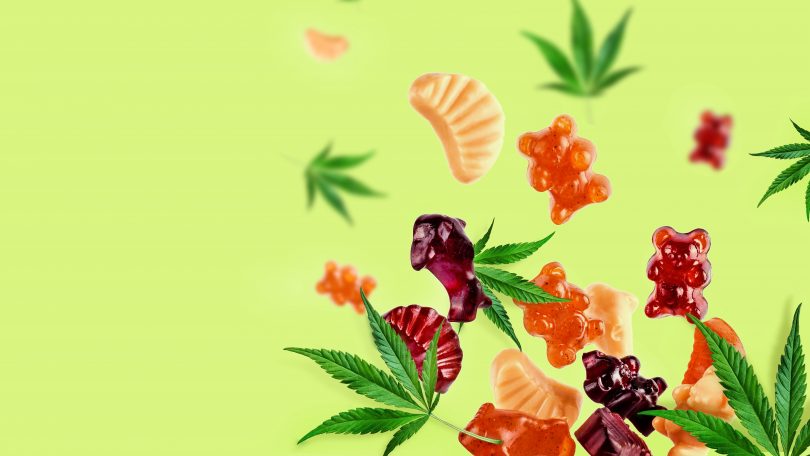While cannabis edibles are a hot topic in Canada these days, there are supposed to be strict regulations in place to dissuade youngsters from trying them. But those rules don’t necessarily apply south of the border.
Having legalized cannabis for recreational purposes last year, the final piece of the puzzle is the delicate area of THC edibles, gummies in particular. While such edibles will officially become legal in Canada on October 17th, they cannot be “appealing to young persons.” The finer details of the regulations are yet to be announced by Health Canada.
Despite the lack of clarity, many cannabis companies are focusing their time, efforts, and resources on creating and manufacturing cannabis gummy bears. One licensed Canadian producer, Zenabis Ltd. told reporters that they are “prioritizing the gummies‘ category of edibles because of its demonstrated and growing appeal south of the border,” said the company’s program manager of food and beverage services, Kyrsten Dewinetz, according to a CTV News report.
“It’s popular with many different demographics, so we’re probably going to forge ahead a little bit more quickly in this category,” she added. It’s also no secret that the company intends to launch its THC gummy bear range within a few months.
The intention of many companies to promote edible cannabis products is in line with a recent Deloitte survey which showed that most people prefer cannabis in gummy bears over things like brownies and cookies. The survey also found that cannabis edibles are increasingly popular as they are very portable, stealthy, and a comfortable and clean way of taking cannabis.
As Rishi Malkani from Deloitte explained, “They’re tiny, they’re easily ingestible, you could do it quite discreetly. It’s a little easier to transport or take with you to an event than brownies or other edibles, or even beverages for that matter.” And that’s not to mention the vast projections for the cannabis edibles market in Canada which top $2.7 billion annually according to some analysts.
According to BDS Analytics, who produce the leading cannabis industry market trend reports, gummy bears are becoming more and more popular in the U.S. Accordingly, in the first quarter of this year, 17 of the top 20 most popular cannabis edible sold in legal states were THC Gummies. However, the fact that THC appeal to children is an issue that needs dealing with a meaningful and cautious way.
In the last few months of 2018, for example, 16 cases of children inadvertently ingesting THC gummies were reported in Canada; all of whom required medical treatment. It’s due to instances like these that the regional government in Quebec has decided to ban the sale of cannabis edibles like sweets and desserts containing THC and “any other product that is attractive to minors.”
For their part, Health Canada, the authority responsible for regulating various aspects of cannabis in Canada, have already confirmed that products cannot be “reasonably considered to be appealing to a young person.” As one Health Canada official said, “If a gummy bear is appealing to a young person, would that be permitted? The answer is no.”
As Can Battley, chief commercial officer for Aurora Cannabis Inc. explained according to the same report that while Aurora agrees intending to keep kids away from THC edibles, there needs to be more clarity on specifics. These specifics include things like shape, size, color, and flavor when it comes to cannabis edibles like gummy bears. Health Canada had promised that they would be offering guidance soon, but this remains to be seen.
